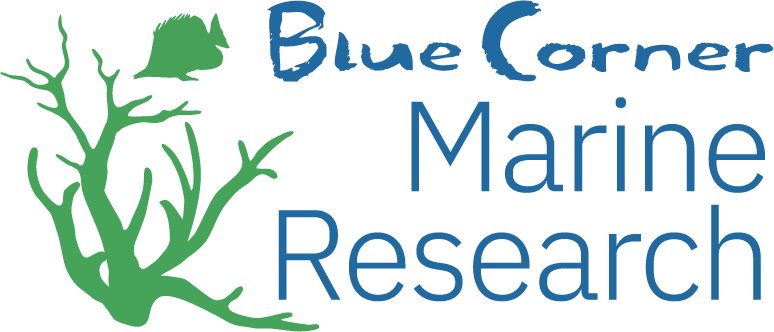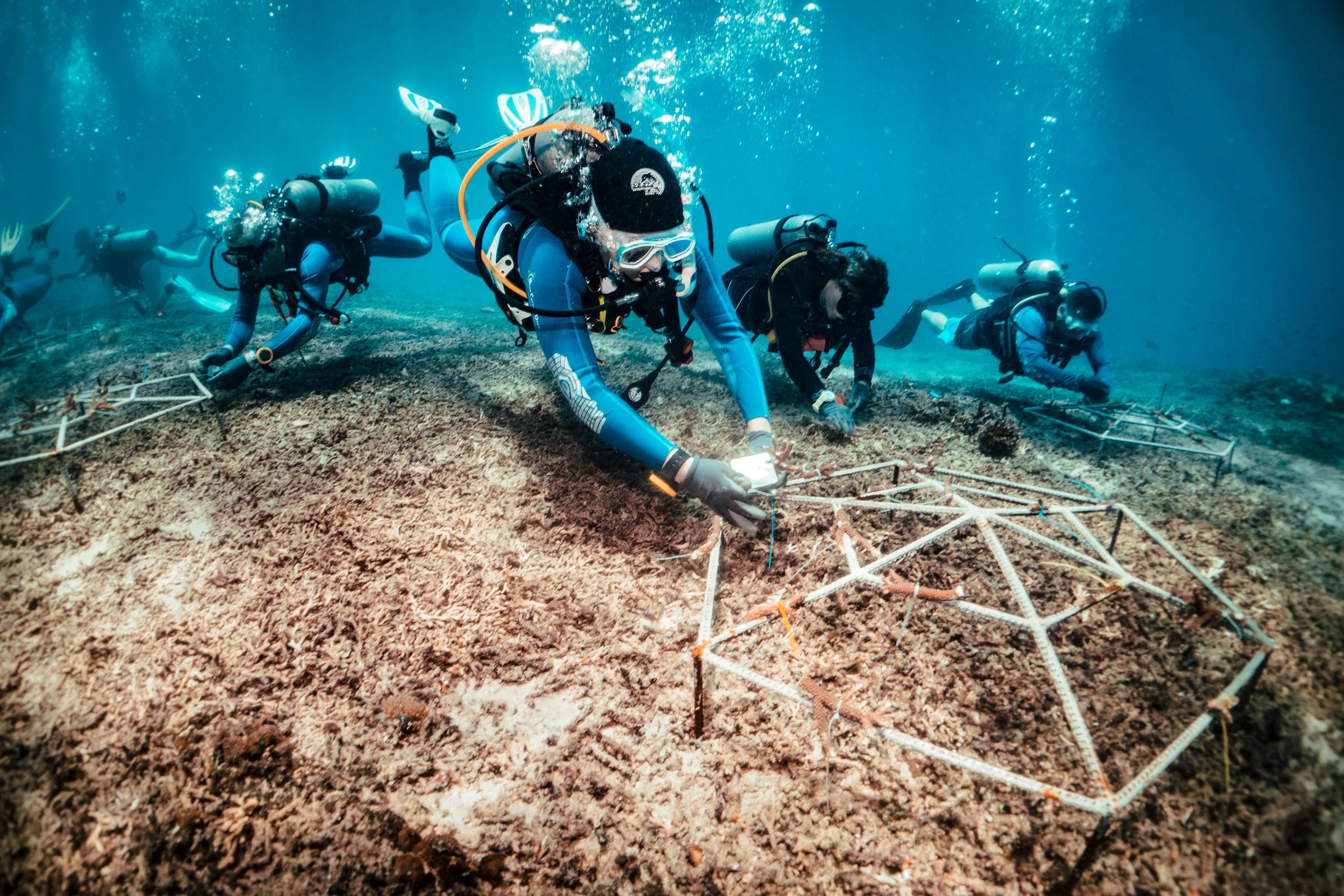Nusa Penida Coral Reef Restoration Project
Restoring Coral Reefs
The Nusa Islands Restoration Project is an ongoing project which was started in 2018 and is directed by Andrew Taylor, professional biologist and certified Ecological Restoration Practitioner (SER CERP #235). The project began as an attempt to reverse the degradation of reef areas along the northern coastline of Nusa Penida. These degraded areas were monitored by our team for 7 years prior to starting the restoration project and were found to be not recovering naturally, but rather expanding. A need for reef restoration was highlighted as a priority in the area, and Blue Corner together with support from the Lembongan Marine Association implemented a plan with the following steps:
Phase 1: Site Monitoring (2011 - Present)
Several impact sites as well as adjacent healthy areas of reef are part of a long-term monitoring project in which we measure fish and benthic communities. Areas of rubble along the northern coastline of the island was monitored for natural recovery and recruitment. These degraded areas of reef were prioritized for restoration suitability and mapped.
Phase 2: Pilot Study (2018)
An area of degraded reef at Sental Divesite was chosen for the pilot project. This project’s aim was to determine reef restoration techniques which were suitable to the unique environmental conditions around Nusa Penida. The restoration techniques used a 2 part approach - (1) physical stabilization & (2) biological supplementation. For physical stabilization we strategically placed modular frames. Biological aspects of the pilot study looked at natural settlement of coral species upon frames and surrounding rubble in order to study the successional communities of a recovering reef. We also supplemented the coral population through transplantation of several key species of coral upon the frames, monitoring growth rates as well as secondary settlement of other reef species. Studies are ongoing at our pilot site looking at growth and survivorship of multi-species vs single species transplants, as well as single-parent micro-fragmentation of three different coral species.
Phase 3: Reef Restoration Site Planning (2018 - 2021)
Any successful environmental restoration project needs to have a specific plan developed for the site. The restoration plan sets out a description of the current state of the site, a description of the target reef community, and the recovery trajectory to get from the current state to the target. This recovery trajectory sets out the techniques to be used (for example which species to transplant at what times and how often to monitor). For the Nusa Islands Restoration Project we chose to use modular coated metal frames & mesh for substrate stabilization. We also chose to create a floating coral nursery at the site to provide healthy resilient parent stock for the coral transplants - rather than harvest from surrounding reef or use broken coral colonies with compromised health.
Phase 4: Implementation, Monitoring & Community Involvement (2018 - present)
Installation of structures, transplantation of corals, and monitoring of the restoration site is an ongoing process. The team of biologists at Blue Corner and interns in our marine conservation program tend to the restoration site on a continuous basis. Diving guests and volunteers can help out for a day to support the restoration program, and several times a year Andrew runs an intensive week-long coral restoration workshop to train aspiring conservationists in restoration ecology and reef restoration techniques.
Over the years our coral restoration project has expanded across an ever growing area of reef along the northern coastline of Nusa Penida. Additional projects have been started in order to restore these reefs to their abundant splendour. Check out our full project summary by downloading it below:
Help us Restore the Reefs by purchasing biodiversity offsets:
Interested in donating to our coral restoration project? You can pay for a coral frame (or multiple frames) to be built and installed, then our team will go out and transplant corals upon it on your behalf!


